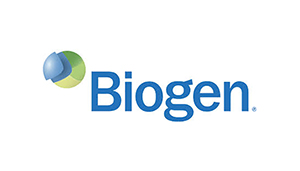 Biogen (NSDQ:BIIB) said on Thursday that it received a subpoena in December last year from federal investigators about the prices of its top-selling multiple sclerosis drugs, Tecfidera, Avonex, Tysabri and Plegridy.
Biogen (NSDQ:BIIB) said on Thursday that it received a subpoena in December last year from federal investigators about the prices of its top-selling multiple sclerosis drugs, Tecfidera, Avonex, Tysabri and Plegridy.
In its annual regulatory filing, the company wrote that the investigators inquired about “government price reporting, rebate payments and Biogen’s co-pay assistance programs.” While Cambridge, Mass.-based Biogen said it was cooperating with the federal probe, it did not provide any other specific details.
Effective Jan. 1, Biogen hiked the U.S. prices of Tecfidera, Avonex and Plegridy by 8% each and Tysabri by 3.5%.
On Thursday, BIIB shares fell -7% to $263.35 apiece after the company’s hemophilia spin-off, Bioverativ, made its debut on the NASDAQ market.
Bioverativ set out with Biogen’s 2 approved hemophilia drugs, Eloctate and Alprolix, and $325 million in cash. The spin-off is listed under the symbol “BIVVV” and was trading at $44.04 apiece in mid-morning activity today, down -2.1%.
Also this week, Biogen met expectations on Wall Street with its 4th quarter financial results, but pegged its full-year revenue forecast lower than analysts expected.
The biopharmaceutical company posted profits of $649.2 million, or $2.99 per share, on sales of $2.87 billion for the 3 months ended Dec. 31, for bottom-line loss of -21.9% on sales growth of 1.1% compared with the same period last year.
Adjusted to exclude 1-time items, earnings per share were $5.09, ahead of consensus on The Street, where analysts were looking for sales of $2.94 billion.
Drug pricing in the pharmaceutical industry has sparked national debate this year. President Donald Trump recently said that drug companies are “getting away with murder” in regards to what they charge the government for medications.
Trump met with pharma executives this week to address pricing, production and regulations. The president called on the company execs to increase U.S. production and lower “astronomical” drug prices.
Merck (NYSE:MRK) and Eli Lilly (NYSE:LLY) told Reuters that they were encouraged by the President’s focus on innovation and that the meeting also touched upon issues like negotiating stronger trade agreements, tax reform and getting rid of outdated regulations.
“Tax, deregulation – those are things that could really help us expand operations,” Lilly CEO Dave Ricks said.

